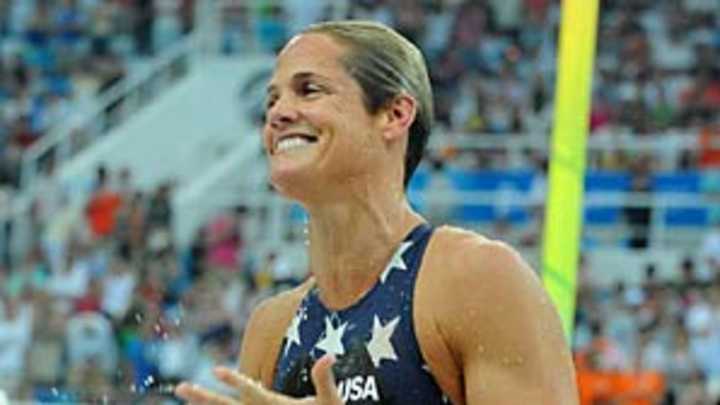My Sportsman: Dara Torres


Sports Illustrated will announce its choice for Sportsman of the Year on Dec. 2. Here's one of the nominations for that honor by an SI writer. For more essays, click here.
Dara Torres didn't win eight swimming gold medals at the Beijing Olympics; she didn't even win one. But in winning three silver medals at the age of 41, this mother of one did something just as awe-inspiring. Her feat blew the lid off assumptions about the chronological limits of athletic achievement, thus lighting a flame of inspiration under athletes of both genders, at every level and all ages. For her inspiration to legions -- and because 2008 has been a year for breaking barriers -- Torres is my Sportsman of the Year.
Torres had already collected nine medals in four Olympics, spanning back to the 1984 L.A. Games, before she started her latest comeback, just a few months after the April 2006 birth of her daughter, Tessa. Why would she want to endure the grueling training and myriad of sacrifices that world-class swimming demands, again? She said she was inspired by a number of fellow master swimmers who told her they wanted to see a 40-year-old in the Olympics. With all affection, her swim coach, Michael Lohberg, said it was because "she's nuts."
Whatever her motivation, Torres didn't merely make the Beijing team. When she anchored the U.S. to a silver medal in the 4x100 free relay on Aug. 10, she became the oldest Olympic swimming medalist of either gender (she was already the oldest swimming gold medalist, having won two relay golds at the 2000 Games in Sydney at 33.) In the 50 free a week later she lost the gold to Britta Steffan of Germany by one one-hundredth of a second. Her time of 24.07 was an American record -- it was just a tenth of a second off the world record held by Australia's Libby Trickett -- and it was Torres' best finish in an individual Olympic race. About 35 minutes later she anchored Team USA's 4x100 medley relay, nearly catching Trickett before finishing in 52.27, the fastest 100-free relay split in history.
Lohberg, who watched Torres' races from his hospital bed in Bethesda, Md., where he was battling aplastic anemia, was one of many coaches who tried to put her achievements -- world-class personal bests, after the age of 40 -- into perspective. "I think this performance ranks up there with the biggest performances in sports ever," he said. "It puts Dara in the ranks of Michael Phelps, Michael Jordan, Tiger Woods. What she has done is really not measurable."
Equally immeasurable, perhaps, are the number of people who have been inspired by Torres. After meeting her in September, Yankees pitcher Brian Bruney told The New York Times, "After what she's done, how can you not look in the mirror and say, 'Are you doing enough?'" Seven-time Tour de France winner Lance Armstrong has cited Torres as one of his inspirations for getting back into competition at the age of 37. Less heralded and less-talented athletes of all stripes have stopped Torres on the street and in restaurants to tell her that because of her example, they were now doing things that they never thought they would do.
Will we see a wave 40-somethings mounting the Olympic podiums in London in 2012? Not likely. There aren't many aging elite athletes who have Torres' combination of resources, enduring competitiveness (she says she hates to lose more now than she did in her 20s) and compulsive dedication to fitness. But if by her example Torres gets a lot more people to even mount a starting block, her silver medals will have a lasting impact far beyond most golds.
